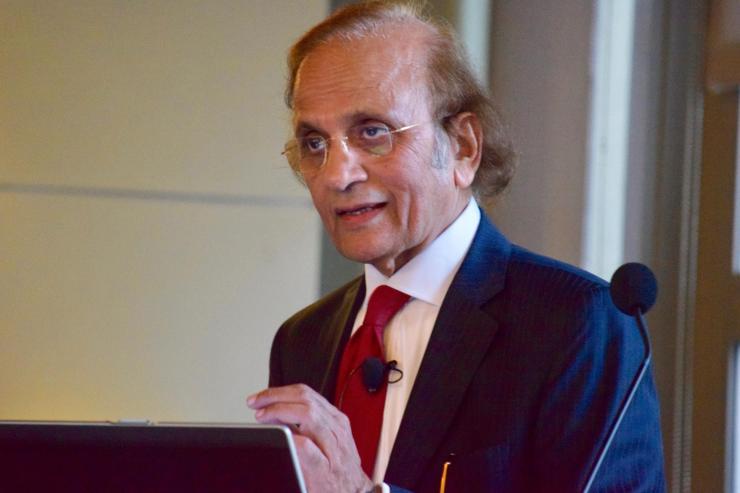Hon.Tassaduq HussainJillani

Justice Tassaduq Hussain Jillani received his school and college education in Pakistan. He graduated from the Forman Christians College, Lahore and from the same institution, he obtained his Masters Degree in Political Science. He started his professional career as a lawyer from the Districts Courts Multan and in a short span of less than ten years, was enrolled as an Advocate of the High Court and Supreme Court. During his practice in law, he held various elected offices i.e. he was elected Secretary General of the District Bar Association Multan and Member of the Punjab Bar Council. In 1979 he was appointed as Assistant Advocate General Punjab and thereafter he became Additional Advocate General and finally the Advocate General Punjab in 1993. In 1994, he was elevated as Judge of the Lahore High Court, Lahore and having served there for ten years (from August 7, 1994 to July 2004), he was elevated to the Supreme Court of Pakistan ( in July 2004). In December 2013, Justice Jillani was sworn in as the new Chief Justice of Pakistan following the retirement of his predecessor.
Justice Jillani has participated in several international conferences and colloquiums where he spoke on issues which included “Domestic Application of International Human Rights”, “Gender Justice”, “Alternative Dispute Resolution”, “Forced Marriages”, “Transnational Child Abduction” and “Religious Tolerance”. Some of the honors and awards received are as below:
- Was awarded “Key of the City of Detroit (Michigan)” by the Mayor at a function;
- On 12th of October, 2007, conferred “Honorary Doctorate in Humane Letters” at a special Convocation held in Southern Virginia University, Washington;
- In July 2008, was invited by the American Bar Association to receive the ‘2008 Rule of Law Award’ on behalf of those Judges of Pakistan who demonstrated courage in upholding the ‘Rule of Law’ in the country.
- The Hague Conference has appointed him as the Co-Chair of the Working Party on Mediation in Family International Law. The Working Party comprises of Judges of the Superior Courts and Academics from Europe, United States, Latin America, India and Asia.
- 'Justice for All' (the theme song sung at the 50th Anniversary of the Supreme Court of Pakistan) penned down by Mr. Jillani has been declared as the Judicial Anthem of Pakistan by the Full Court presided over by the Hon'ble Chief of Justice of Pakistan
- He was appointed as member of the Hague International Judicial Network.
- In February 2017 he went to University of California San Diego School of Global Policy and Strategy on an invitation for a two-week fellowship granted by the Centre on Global Transformation. During his stay he also gave a public talk on "Maintaining Judicial Independence in the Face of Political Challenges", where Judge Margaret McKeown of the 9th Circuit, U.S. Court of Appeals was his co-speaker.
- He was conferred the Distinguished Formanite Award by the Forman Christians College University, Lahore for the year 2011.
Justice Tassaduq Hussain Jillani is known as a liberal, independent and balanced Judge. As a Judge of the High Court and Supreme Courts, he delivered opinions and authored judgments on various issues of domestic and international concern such as enforcement of fundamental rights (Ahmad Abdullah v. Govt of the Punjab, PLD 2003 Lahore 752), gender equality, the right of an adult woman to marry a person of her choice in Islam (Humaira Mehmood v. The State PLD 1999 Lahore 494), declaring the right to education a fundamental right (Ahmed Abdullah’s case ibid) and holding that in an age of globalized inter-dependence, dual nationality should be permitted (Umar Ahmad Ghumman v. Govt of Pakistan PLD 2002 Lahore 521), laying down guidelines for qualitative improvement in legal (Pakistan Bar Council v. Federal Government PLD 2007 SC 394) and medical education (Pakistan Medical & Dental Council v. Ziauddin Medical University PLD 2007 SC 323).

